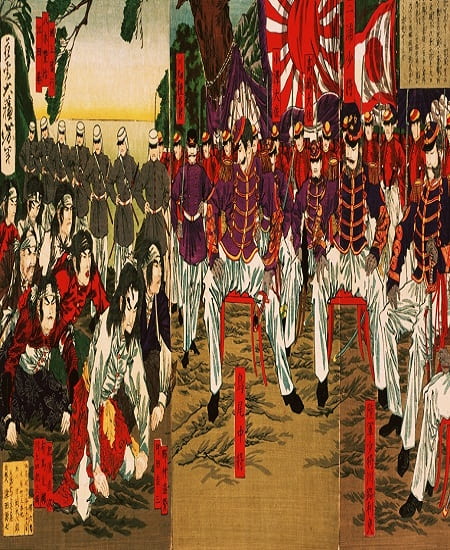Audio Recording Part 1
Audio Recording Part 2
Friday, March 23, 2018
Time: 2pm-4pm
Location: National Churchill Library and Center (Gelman Libaray 101a)
This event is co-sponsored by the Department of East Asian Languages and Literatures and the Sigur Center for Asian Studies.
Speaker: Michael Wert, Associate Professor of East Asian History, Marquette University
Abstract: The Meiji Restoration is typically analyzed in terms of international and domestic politics, intellectual trends, and changes in the commercial economy. This talk adds to that conventional narrative by exploring the role of warrior identity and the widening gap between warrior ideals and warrior realities in the nineteenth century. For samurai and elite commoners alike, martial culture in the form of swordsmanship became a vehicle for acting out the fantasy of the ideal warrior at a time when warrior authority was at its nadir. Rather than see culture as simply a site of resistance, it was the very act of over-identifying with warrior fantasy and ideology that undermined the Tokugawa regime.
Speaker Bio: Professor Michael Wert is an associate professor of East Asian history at Marquette University, with a focus on early modern and modern Japan. His first book Meiji Restoration Losers: Memory and Tokugawa Supporters in Modern Japan engages memory theory by asking how memory can help answer broader historical questions. Specifically, it traces the “memory landscapes” of the Meiji Restoration from 1868 to the present through the lens of those on the losing side. His second project continues to center around the Meiji Restoration, using theoretical tools to investigate the role of martial fantasy, culture, and violence in the early modern period. Professor Wert is a graduate of GW (B.A. East Asian Studies, 1997).


